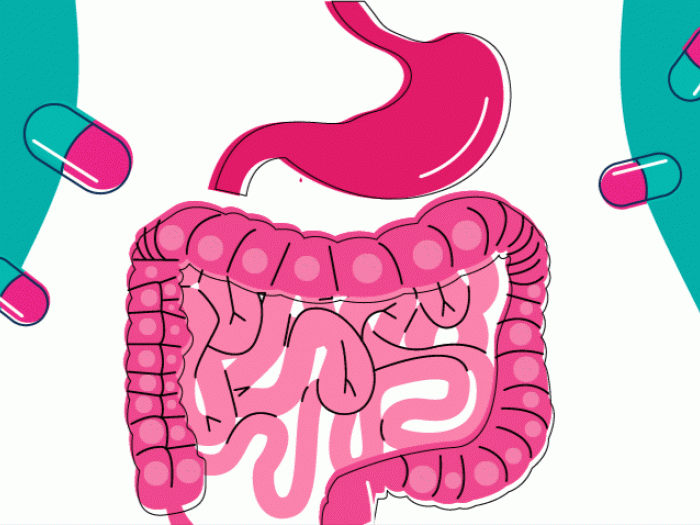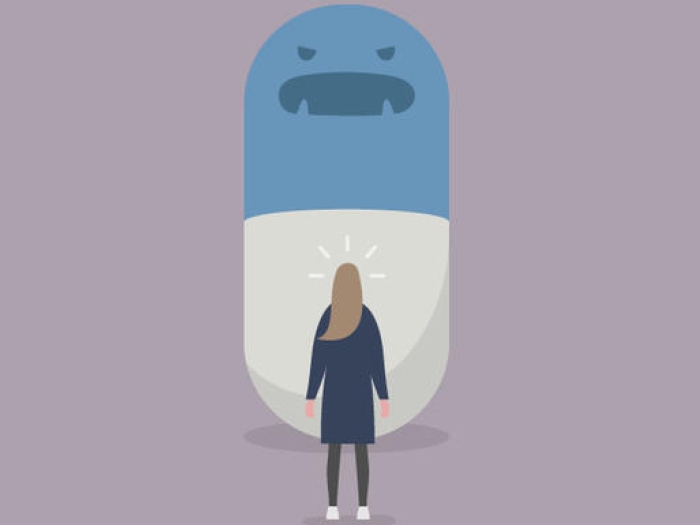A gastroenterologist develops an eye-opening survey to assess physician perceptions on the use of proton pump inhibitors.
9:45 AM
Author |

Proton pump inhibitors (PPIs) are often prescribed by physicians to help patients treat symptoms like heartburn or stomach discomfort. They also serve a role in preventing gastrointestinal bleeding in patients who have a history of ulcers or use blood thinners, like aspirin.
However, research has raised many questions about the safety of PPIs. They have been linked to conditions like kidney disease, vitamin and mineral deficiencies, severe diarrhea and bone fractures, although the latest high-quality evidence suggests that PPIs likely do not cause these conditions.
"Physicians have been hearing a lot about the importance of cutting back on the use of PPIs because of concerns about certain possible adverse effects," says Jacob Kurlander, M.D., an assistant professor and gastroenterologist at Michigan Medicine. "But one big question remains: Are physicians able to differentiate between patients in whom stopping the PPI is safe and those in whom it is not?"
This question inspired Kurlander and a team of researchers to investigate physicians' recommendations for PPI-use in several different clinical situations. Their work was recently published in the American Journal of Gastroenterology.
"We wanted to understand physicians' perceptions about the appropriate use of PPIs," says Kurlander.
The researchers invited 799 internists to complete an online survey regarding their understanding of the adverse effects and effectiveness of PPIs. The questions were designed around topics like PPI-use for the prevention of upper GI bleeding, changes in PPI prescribing and patient management recommendations.
MORE FROM THE LAB: Subscribe to our weekly newsletter
"The results were really fascinating," says Kurlander. "Nearly four out of five respondents inappropriately recommended that their patients stop using PPIs that were prescribed to prevent upper GI bleeding."
Kurlander and his team also found that physicians believe PPIs carry a substantial risk of side effects, and have received the message that they should be cutting back on their use.
"Physicians may be overlooking a critically important benefit of these drugs, which is the prevention of GI bleeding," says Kurlander. "PPIs are quite effective for this."
Like Podcasts? Add the Michigan Medicine News Break to your Alexa-enabled device or subscribe for updates on iTunes, Google Play and Stitcher.
The survey revealed that while recent professional recommendations have put a strong emphasis on using PPIs more restrictively and stopping them altogether in patients who may not need them, many internists were recommending that their patients stop taking the drug in situations where it was necessary.
"Efforts to reduce PPI use may have the unintended consequence of worsening the underuse of PPIs for prevention of upper GI bleeding, which has been a long-term problem," says Kurlander. "This study was very illuminating."
Paper cited: "Physicians' Perceptions of Proton Pump Inhibitor Risks and Recommendations to Discontinue," American Journal of Gastroenterology. DOI: 10.14309/ajg.0000000000000558

Explore a variety of healthcare news & stories by visiting the Health Lab home page for more articles.

Department of Communication at Michigan Medicine
Want top health & research news weekly? Sign up for Health Lab’s newsletters today!





